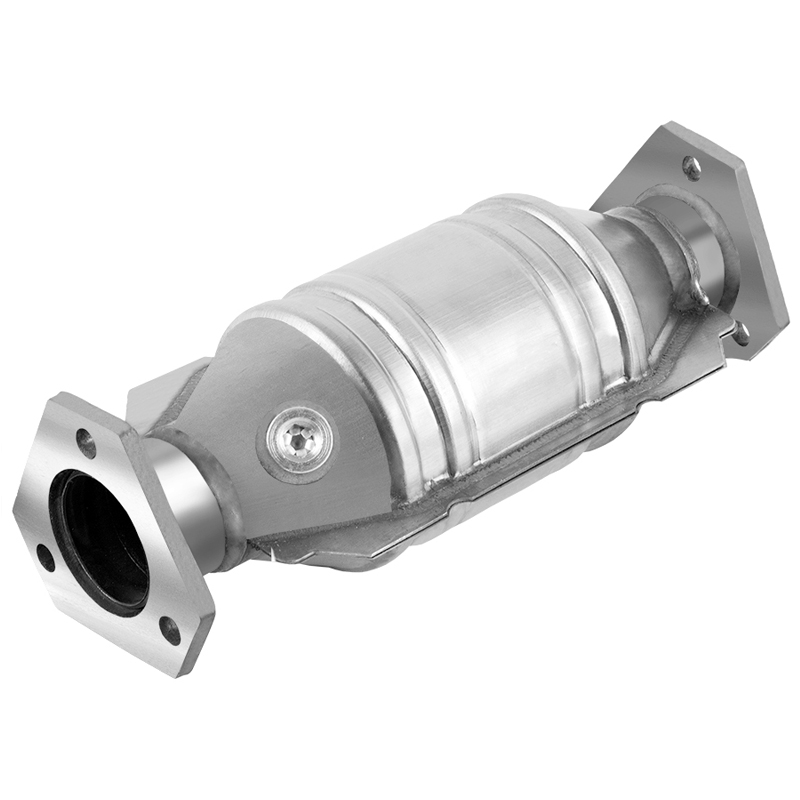If your catalytic converter is going bad, that’s bad for the environment. And depending on where you live, that failing catalytic converter just might keep you off the road; a failed emission test usually means that you’ll have to get the problem fixed before you can get your car back on the road again.
So it certainly helps to have a heads-up when your catalytic converter decides to start converting itself into scrap metal. What can we do to diagnose a bad cat? Before we jump into some signs of failure, let’s take a brief interlude as to how the catalytic converter came to be, and a rundown on its basic job in your car’s exhaust system.

Before the mid-1970s auto makers were less aware (whether voluntarily or involuntarily can be argued) of the damages car emissions caused to the environment.
Well, as it happened, politicians, environmentalists, public policy makers and others care about those fumes. But with millions of cars on the road, limiting pollution came down to one of two choices:
1) Ban all cars and switch to a bicycle-riding society. Good luck with that idea…
2) Come up with a device on the exhaust system to make car emissions less toxic.
Enter the catalytic converter.
In the simplest terms, a catalytic converter takes toxic pollutants in the exhaust and makes them less toxic. Digging into the details a bit, the three primary gases of concern are smog-causing hydrocarbons, poisonous carbon monoxide and Mother-Nature wrecking nitrogen oxides. Through a fairly complex process of filtering and chemical reactions – and a little help from some precious metals inside the catalytic converter – 90% of the toxic fumes are converted and reduced into something more manageable.
How To Diagnose Catalytic Converter Problems: 5 Warning Signs of Impending Failure
Now, let’s apply some of that basic knowledge to some problem signs you might not associate with catalytic converter failure, but deserve a second look.
Subpar Fuel Economy
When your car’s lagging in the MPG department, the catalytic converter is one of the last things you might suspect is the problem. Instead, you might look at the kind of gas you’re using, a clogged fuel filter and other similar fuel-delivery glitches. But the catalytic converter could be the culprit. When it starts to fail, the finely-tuned exhaust process can impact fuel use in a big way. Minor drops in MPG are hard to detect, but look for anything over 10% of your highway MPG. For example, if your car gets 35 MPG on the highway, it’s worth examining the root cause of anything that brings your MPG down to 31.5 MPG or lower – and the reason just might be your catalytic converter.
Sluggish Acceleration / Power Loss
If it takes your car longer than usual to reach a certain speed – say, 60 MPH – catalytic converter issues might be the cause. A whine, squeal or other weird noise during acceleration can indicate that your exhaust gases aren’t being processed and filtered properly. Many people think the muffler is the reason for weak acceleration, but it’s usually the catalytic converter. Get it checked, cleaned or replaced and you’ll notice an immediate jump in acceleration.
Colder Outlet Temperature Reading
This sign will require a little work, but it’s worth it. Using an infrared thermometer, check the temperature of your catalytic converter’s inlet and outlet areas. The outlet area should be significantly warmer than the inlet area, usually around 100 degrees Fahrenheit. If the outlet area is colder than the inlet, there’s a strong possibility your catalytic converter is about to fail, or is currently failing. Another related trick is to remove the oxygen sensors (commonly called O2 sensors) from the exhaust system. Once removed, check the car’s performance for a noticeable lag in performance. If there is, your catalytic converter is starting to go bad.
Strange Exhaust Odors
Your nose might be the key to detecting catalytic converter failure. Take note of your exhaust odor. A strong, pungent smell is a sign that the catalytic converter is not working properly and is essentially being flooded with fuel. Get your catalytic converter checked ASAP, if you detect a strong odor. With the excessive heat and gases being generated, your car may become unsafe to drive. This symptom usually accompanies the loss in power & acceleration, so pay attention if both of these signs happen simultaneously.
Failed Emission Test
Not all U.S. states require automobile emission testing, but it’s only a matter of time before all 50 are on the list. Currently, 32 states require an emission test. If you live in one of those 32 states, a failed emission test is the most accurate – and, truth be told, unexpected – ways of detecting catalytic converter failure. A bad exhaust system could be due to a pipe, or the muffler, or even the exhaust manifold. But the most common reason for a no-pass test is the catalytic converter. Interestingly, it’s also the most expensive. Not everybody wants to find out their catalytic converter is failing with a bad emission test, but think of this method like a warning from your teacher or parent – fix the problem (replace your catalytic converter), or there will be consequences (you won’t be able to drive your car).
If your catalytic converter is in fail mode, it’s best to get yourself into repair / replace mode. Browse our selection of catalytic converters with our streamlined, easy-to-use ordering system. If you’re having trouble locating a catalytic converter, our representatives are ready to assist you today. Try a chat session, or give our auto parts specialists a call at (888) 907-7225.


